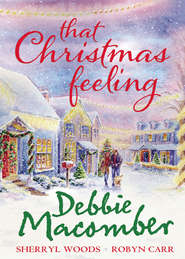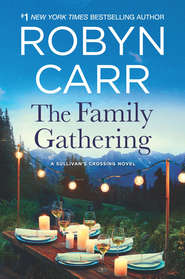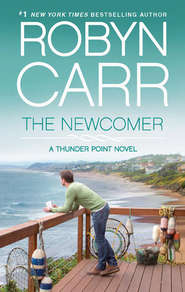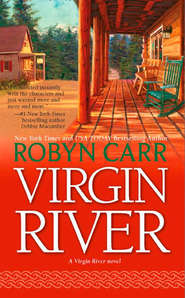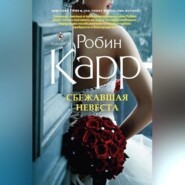По всем вопросам обращайтесь на: info@litportal.ru
(©) 2003-2024.
✖
Runaway Mistress
Автор
Год написания книги
2018
Настройки чтения
Размер шрифта
Высота строк
Поля
Hedda stayed outside awhile after her mother left, staring in the direction of her departure. When she came back inside, she was quieter. To her credit she kept her chin up. And she didn’t say a thing about giving her mother money.
There was a coin-operated washer and dryer at the Sunset Motel, so Jennifer put on her sweat suit, the first purchase she had made after fleeing the MGM Grand, and washed her clothing and sheets. Nothing in her life felt more like luxury—even in her Fort Lauderdale condo—than clean sheets. These sheets were a little on the muslin side rather than the nice six-hundred-count at home, but it was the clean smell that counted.
In bed, cozied up to the smell of Downy, ready for a guiltless sleep, she heard the sounds of a neighborhood that was still awake through the thin walls. Someone played a radio too loudly and young peoples’ voices could be heard from another block. There were the occasional horns honking, engines revving and the unmistakable sound of a skateboard whizzing past her room.
What am I doing here? she asked herself for the millionth time. Of all the things she had considered for her future, her imagination had never ventured this far. She had thought about a career in real estate, or maybe even a travel agency.
She wasn’t missing her sexy clothes, nor did she lament frequent trips to fancy spas or resorts. She hadn’t wanted to be the other woman for life and, in fact, the sooner she could leave all that behind, the better. But one thing she had never seen coming was what appeared to be a return to the tough times of her youth.
It had been almost four weeks, and the time had flown by. She appeared to have been left alone by Nick, though he rarely left her thoughts. Every day she expected to see his chauffeured car drive slowly past the diner, but as the time passed she was left to assume he was back in Florida, probably searching for her there, where all her personal belongings were. As for Nevada, had he left the search to the local police?
So she told herself, easy does it. Vowing to take it one day at a time until she could figure out how to retrieve her savings and investments so she could truly start over—maybe pursue that real estate or travel agency career—she settled into the sheets.
One of her final thoughts before drifting off was that there were things about this she liked. Getting Louise her breakfast, Alice her biscuit. Dancing around the diner with Hedda. Watching Buzz take care of the neighborhood, in his own way.
She just wasn’t crazy about being bald, wearing army surplus or eating Mexican meat loaf….
Four
Jennifer watched as Louise Barstow made her way cautiously down the cracked sidewalk, one bent leg at a time, gripping a cane in each gnarled hand to help hold herself upright. She could see that shocking white hair slowly rise and fall with each step Louise took. Clearly it hurt her to walk, but she had told Jennifer that if she didn’t walk as much as possible, bearing the pain of arthritis, she would be bedridden in no time. She rejected the suggestion of a scooter or wheelchair. “I’m degenerating fast enough as it is,” she said. “I’ve seen others my age give in to wheels, and that’s it. They quit walking, and the decline is even faster.”
She did well for an eighty-year-old with severe arthritis. Right beside her, just about as old and slow, was Alice. At fourteen, she was ancient for her breed. Jennifer was amazed by them both and wondered if she would have that kind of fortitude at that age. She wondered if she’d be fortunate enough to even see that age.
Louise was a teacher, a college professor who had driven to Las Vegas and sometimes farther when she was teaching, and Buzz was the only guy in town willing to open at 5:00 a.m. “But I don’t teach anymore,” she had told Jennifer. “At first it was for the pleasure of company in the morning after my husband, Harry, died, then it was for the exercise and finally it became a matter of survival. But I don’t exactly bounce out of bed in the morning anymore.”
Jennifer opened the door when Louise finally arrived. “Good morning, Madam Professor,” she said. Louise’s face brightened immediately and Jennifer knew that she liked being addressed in that way. “Two canes as opposed to the walker—that must mean your arthritis is pretty tame today.”
“Hah. You wish. I’m just especially brave.”
“Ah, I should have known.” She had Alice’s bowl of water in her hand and placed it before her on the sidewalk outside the diner while Louise went inside and got settled.
It was one of the high points of the morning for Jennifer when Louise and Alice arrived. The way the older woman expressed herself—a kind of harsh but kindly manner—was a kick. “You’re a little rough around the edges, aren’t you, Doris?” was one of the first things she’d said to her. And she always asked personal questions that Jennifer skittered around. Direct questions like “Where do you come from and who are your people?”
Jennifer admitted to coming from the Midwest, which was not entirely untrue. Her grandparents lived all their lives in Ohio, even though Jennifer had moved around a lot with her mother. And she said she didn’t have any people, unfortunately.
She got Louise’s tea right away. “Here you go,” she said. “What can we get you for breakfast this morning?”
“I don’t know,” she answered. “I’m not hungry.”
“You will be by the time you start nibbling. Have to keep your strength up.”
“Widows tend to skip meals or eat over the sink. Did you know that, Doris? But not Rose, my next door neighbor. She’s in so much better shape at seventy, and she fixes a proper supper every night and eats it while seated at the table. But then Rose has never been married, and it makes a difference somehow.”
“Why is that?”
“I don’t know exactly. It’s the having been married that does a lot of us in. As if when the old boy goes, there goes the only excuse we have for fixing a good meal. But you didn’t see me eating over the sink before I was married.” She snorted. “Of course, I was married at seven.”
“Seven? A little young. Were you one of the Travelers?”
“The what?”
“Those gypsies who marry off their girls before they’re out of elementary school. The Travelers.”
“You have a very unique education, Doris. For a biker chick.”
Jennifer laughed. “I like the news magazine shows—like 60 Minutes. Now, how about some eggs and fruit?”
“Fine, then. You’ve been here about a month, haven’t you, Doris?”
“Just about. Want some whole wheat toast?”
“No butter. You must like Boulder City a little or you would’ve moved on. At least to better employment.”
“Come on, Dr. Barstow—I couldn’t ask for more than this!”
Jennifer loved the way Louise’s face brightened whenever she titled her. The first time she did so, Louise told her straight out that it felt rather good to be given that title. After all, she’d come up through the ranks of academia at a time when women were still being admitted with some reluctance.
“Buzz is lucky to have you. You should make him tell you so twice a day.”
“He is as free with praise as with pay,” she said.
Louise continually surprised her. She was so amazingly observant, for one thing. The first time a couple of Boulder City cops came in and Jennifer found her herself ducking their stares, Louise had said, “If you’re going to be so obvious, they’re going to know you don’t want to be recognized. Look ’em in the eye—that’ll fool ’em for sure.”
Taken aback, she had replied, “Are you saying they’re not all that sharp?”
Louise had shrugged. “We have very little for them to do here in Boulder City, Doris.”
Louise had taken to recommending books to Jennifer and every day she went to the library, reading them quickly. In just one month she’d gone through all of Jo-Ann Mapson, Alice Hoffman and Alexander McCall Smith. Louise had speckled some nonfiction in there, as well— Women and the American Experience, for starters. That took Jennifer more than one day to get through.
Jennifer took a dog biscuit outside to Alice, gave her some pets, then returned to the diner to wash her hands. She then delivered the fruit and toast to Louise.
“Doris, I see you’re letting that hair grow in a little. I wondered what color it was. It’s darker than I imagined.”
“It’s darker than I remembered,” Jennifer laughed. “I doubt I’ll let it get any longer than an inch, tops.”
“I just can’t imagine what you were thinking. Egad.”
“I thought it would be quite a statement. Bold. Different.”
Louise lifted her eyebrows questioningly. “Is that a fact?”
“Yes,” she said.
“Well, unfortunately it made you look more like a thug. But this is better, this little bit of hair.” She reached a gnarled hand out and patted Jennifer’s head. “I have to tell you that when you smile, you are transformed. And your smile doesn’t really fit with this look—with the piercings and army clothes. But, I’ve never been very good at fashion.” Then Louise abruptly changed the subject. “Is it too late to make it a vegetable omelet? Egg substitute?”
“Not at all. I told you you’d find your appetite once you got started. I’ll have it right up,” she said, taking the order slip to Adolfo. And then, per her routine, she went back to Louise’s table. “I finished The Seasons Of Women. Do you have another suggestion? I’ll be taking it back to the library this afternoon.”
“Hmm. Have you read Gift from the Sea?”







